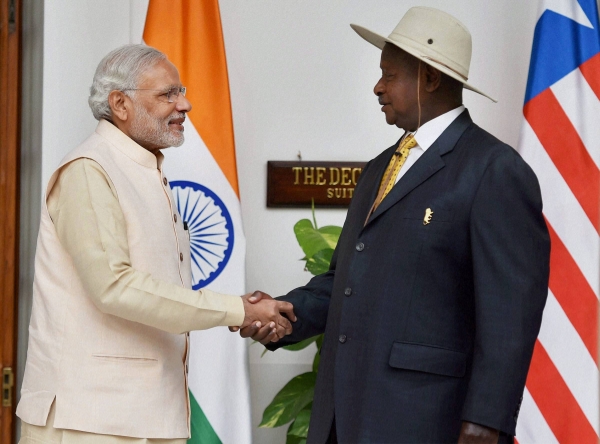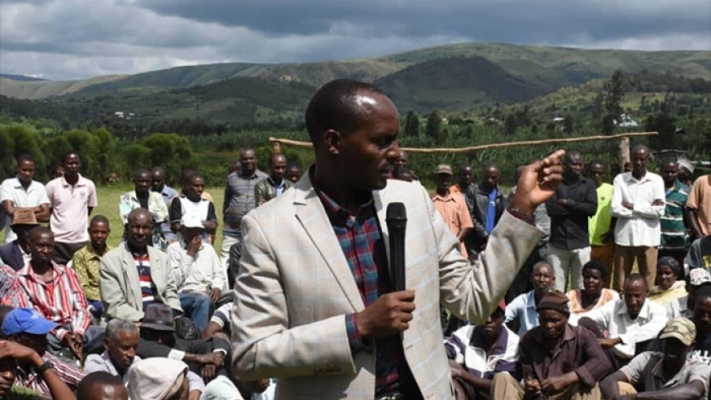The organic farming community in Uganda has appealed to the government not to let up on its stand on the genetically modified organisms (GMO) technology.
The decision by the Kenyan cabinet in October to lift the ban on the importation of GMO foods rattled the region’s farming fraternity, on fears that this might lead to disastrous effects on the sector.
The government of William Ruto made the announcement saying it was aimed at plugging the impending food scarcity in the country as the harvest there is expected to fall drastically due to the erratic rains this season.
Kenya’s neighbours, specifically Uganda and Tanzania, were worried that because of the porous borders, the GMO products could find their way across, without being regulated and cause harm.
The High Court in Kenya on Monday temporarily suspended the government’s plan pending determination of a suit against the state’s lifting of the ban on importation and distribution of such products. Welcoming the decision of the court, the National Organic Agriculture Movement of Uganda, NOGAMU, insisted that Uganda is not yet ready in many ways, for GMO technology.
NOGAMU Executive Director, Chariton Namuwoza said they are working with their counterparts in Kenya and the regional civil society to ensure that East Africa remains free of GMOs.
He says that instead of introducing GMO farming, the government can focus on irrigation where drought if a problem, or introduce naturally drought-resistant crops including tree fruits like cashew nuts that can be grown even in semi-arid places.
The development, production, importation and distribution of GMOs in Kenya were prohibited by the government of Mwai Kibaki in 2012 and this was upheld by Uhuru Kenyatta.
The GMO technology involves altering the genetic material of an organism to increase its yield (in the case of agriculture) or withstand natural calamities like harsh weather and disease.
However, the process to alter the genes also interferes with the reproduction system of the organism, meaning that in agriculture, farmer must get new seed from the seed producer because the old seed cannot be replanted. Also, when pollinators like bees or birds transfer pollen from a GMO plant to a non-GMO plant, the non-GMO crop is also affected its seed cannot be replanted.
This is what mainly the opponents of the technology base on, saying that Ugandan and other African farmers do not yet have the capacity, especially to buy seed every time they have to plant. Plus, the seeds are manufactured by specific multinationals, meaning they can dictate where and how much to see the seeds.
Freda Irene Odongtho, the Principal Policy Analyst at the Ministry of Agriculture, Animal Industry and Fisheries says any decision to with GMOs in Uganda follows wide consultations and studies by technical teams.
The debate on GMOs in Uganda is expected to feature prominently through the events to mark the National Organic Week that started today for the next five days.
It will feature field visits to organic agriculture practitioners, a dialogue on agriculture inputs, an exhibition by organic farmers and suppliers as well as the launch of a five-year organic agriculture plan. Best practitioners will also be recognized.
The movement was firmalised 20 years ago with the aim of making the organic production industry recognized and protected both locally and internationally.
According to NOGAMU, Uganda earned 159 million dollars from exports in 2021, after a steady annual increase from 123 million dollars in 2018, and this is expected to grow to between 166 and 182 million dollars this year, according to the National Organic Agriculture Statistics in Uganda.
The statistics compiled by the United National Environment Program, the National Environment Management Authority and the Center for Ecosystem Research and Development, CERD show that the number of certified farmers almost doubled over the four years to 404,000.
On the increasing soil value loss, Namuwoza blames the agricultural practices by Ugandans which includes the use of synthetic chemicals like fertilisers, herbicides and pesticides.
He says the war on Ukraine where most of the fertilisers come from could serve as an advantage for the Ugandan farming industry because those inputs are becoming more inaccessible and expensive to the advantage of locally made organic ones.
The week’s evens also saw a group of Makerere University Innovators come up with a soil and organic product testing solution dubbed ‘Kebera’. Geoffrey Kajubi, one of the Kebera team members says that the system is aimed at helping the farmers determine the suitability of the soils as well as to determine whether a product is free of contamination.
-URN





